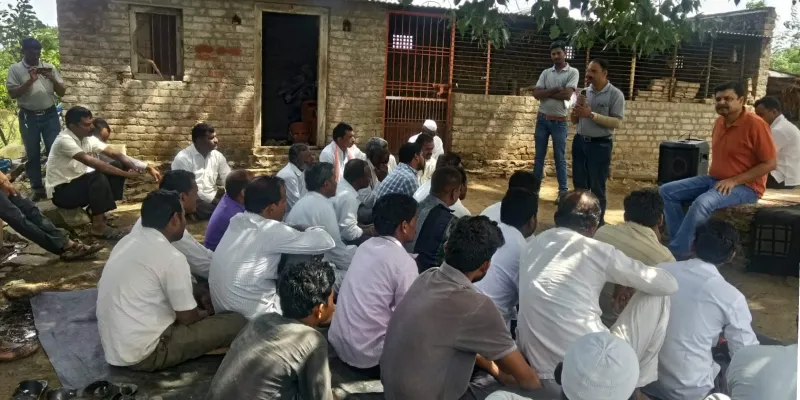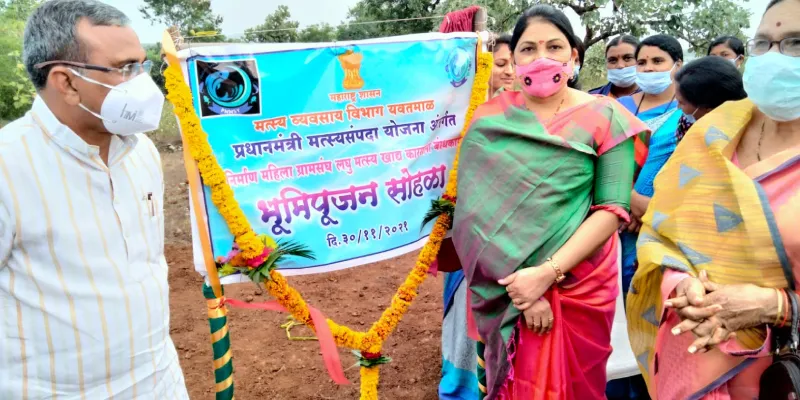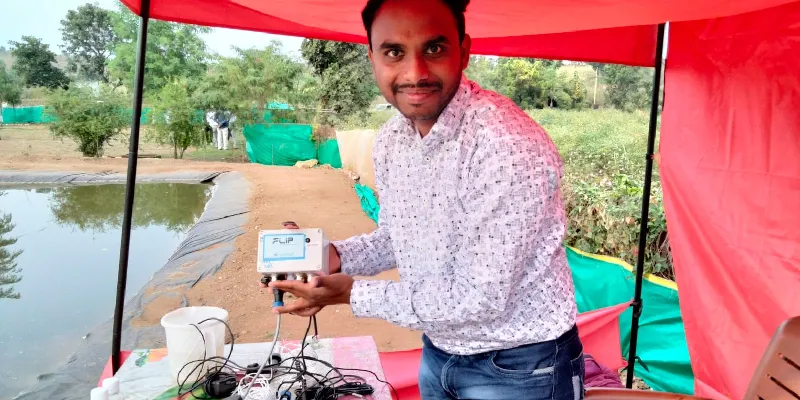
Social Alpha
View Brand PublisherHow Jaljeevika is enhancing the income, livelihood, and productivity of inland aquapreneurs
Leveraging digital tools to empower farmers
Hailing from Maharashtra’s Yavatmal district, Prajakta, who once worked as a bank-sakhi, had to travel a great deal to reach the workplace. She gave it up to become a Financial Literacy CRP but found her true calling only when Jaljeevika entered her life.
As a matsyasakhi, Prajakta took to her new vocation like a fish to water since she had prior knowledge of what the job entailed. She says that the new trend set by Jaljeevika for fisheries has helped several women farmers increase their income considerably and gain respect at home and outside.
Jaljeevika has empowered women to make their mark in a male-dominated industry. In 2014-15, the startup trained about 70 tribal women in Maharashtra in freshwater fish farming. The lessons on pond management and income through fish farming encouraged more than 4000 women and SHGs to engage in fish farming and fish sale-related microenterprises.
Prajakta adds that before Jaljeevika’s arrival most aqua farmers had limited knowledge of the processes and incomes related to fish farming. The startup showed these small-scale farmers how to increase productivity in small spaces.
Founded in 2013 by Neelkanth Mishra, the startup has helped many aqua-farmers optimise their spawn-rearing techniques. It has enabled farmers with affordable and sustainable aquatic farming practices that bring together technology, innovation, and traditional knowledge systems.
In 2020, Jaljeevika Infotech Private Limited started integrating data-based advisory support for fish farmers and strengthened the local market.

Neelkanth Mishra, Founder of Jaljeevika, with Aqua Farmers
Challenges of fish farming
Although India boasts 7 million hectares of freshwater resources, less than 50 per cent of these are utilised for fishery production systems. Even though India ranks second in global freshwater fish production, there is still tremendous potential to boost food security, livelihood, and employment generation for millions of fish farmers.
However, there are some challenges to be addressed first, including lack of proper knowledge of locally suitable aquaculture technologies, absence of better management practices, private sector investments, poor extension services, unavailability of locally produced fish seed, and limited quality input supply.
Lack of access to markets is another major issue impeding the creation of a robust supply chain. Organisations also grapple with a dearth of tech tools that bring efficiency into the fishing operations, provide weather predictions and ensure the safety of fishermen by assisting in search and rescue operations.

Aqua School Inauguration in Yavatmal
Empowering the farming community
Jaljeevika’s Women Extension Agent has helped women become matsyasakhis. According to Niraj Nakhare, District Mission Manager at National Rural Livelihood Mission at Yavatmal, “We can do scalable work under DAY NRLM - UMED livelihoods activity along with well-established fisheries that have technical support from Jaljeevika. In this regard, our community members are becoming more confident and empowered through fisheries-based activities promoted by Jaljeevika. The AquaSchool model is helping hundreds of women fish farmers bring livelihood and income generation.”
‘Empowering Farmers through the Power of Data’ is not merely a tagline for the startup, which has opened up an entirely new avenue of livelihood for communities dependent on the freshwater ecosystem. According to Neelkanth Mishra, all stakeholders in the community, including banks, traders, and insurance companies can leverage data analytics to obtain information related to production, processes and market.
Project AquaEco, envisaged by Jaljeevika, has slashed production costs by at least a third by improving feed utilisation and reducing wastage. Neelkanth shares that the model has helped in creating digital profiles of farmers and waterbodies using IoT sensors. The project ensures that the data assimilated by these devices is recorded and collected offline by people. AquaEco has also leveraged tools and digital infrastructure to build an ecosystem that facilitates value chain development, tech-enabled knowledge creation, and IoT-driven advisory services delivery.
Another model called AquaSchool encourages entrepreneurship among community members and uses technology-linked solutions to integrate backward and forward linkages, and the simplicity and accessibility of the solutions give confidence to small and marginal farmers.
While ensuring a smooth production process through constant supervision, the technology also reduces the production costs, thus helping fish farmers increase their productivity by over 30 per cent. With the help of , Jaljeevika has also roped in people who can help with the architecture and design of applications and web pages. Moving away from conventional means, the startup is helping fish farmers access specific pond-based advisories based on the water quality of ponds, which has helped such organisations step into the new age.
Towards this, Jaljeevika uses a cluster-planning approach to bring together all ecosystem partners in a particular district and attract more investments to help smallholder farmers scale.
“Siddharth Bharadwaj from Social Alpha says that while aquaculture is a relatively new space for livelihood generation, it has the potential to create both upstream and downstream supply chains required to make the process easier and efficient.”

Demonstration of IOT Based Advisory System
Finding solutions
As a part of the Krishi Mangal program powered by Social Alpha and supported by Cisco India CSR, Jaljeevika is implementing a micro-entrepreneurship model with hundreds of small and marginal farmers. With nutrition, taste, varieties, availability and pricing taking centre stage, freshwater fisheries are beginning to see rising demand from the markets.
The application of new data technologies in this sector has increased the efficiency of fisheries management processes. According to a study by the Centre for Strategy and Leadership, a better strategy for fishing could help improve marine resource management, while also increasing the profits of marine farmers significantly.
CISCO India CSR believes that only when these organisations scale up, will they achieve incremental growth through a combination of digital and on-ground innovations. Leveraging SaaS-based solutions alongside deep-tech to enhance and build product capabilities have helped these enterprises take on the demands of the market. It has also allowed them to adopt technological advancements like communications, cloud management, networking, and cybersecurity.
With fisheries and aquaculture being recognised as powerful income and employment generators, CISCO India CSR aims to ensure continuous monitoring of the production process through data collection by IoT devices coupled with analytics to gather intelligence proactively and provide fish farmers with insights that can help them optimise productivity and reduce risk.
Maintaining product quality is another key aspect of this value chain that requires continuous monitoring of the production process. Data collection conducted by IoT devices, when coupled with analytics, helps in gathering intelligence and insights that can boost productivity and improve decision-making.
After looking at the enhancement of fish production through scientific service delivery, over 570 farmers have turned to the fishery livelihood in the Ralegaon Block of Yavatmal. These steps taken by Jaljeevika have helped them stay true to their value proposition of ‘Water-efficient farming as a business service’.
It’s heartening to see how Jaljeevika has been acting as a change agent, leveraging digital tools and streamlining processes to make communities self-reliant. Its far-reaching impact is best evident in the increasing presence of empowered women in a male-dominated vocation.







